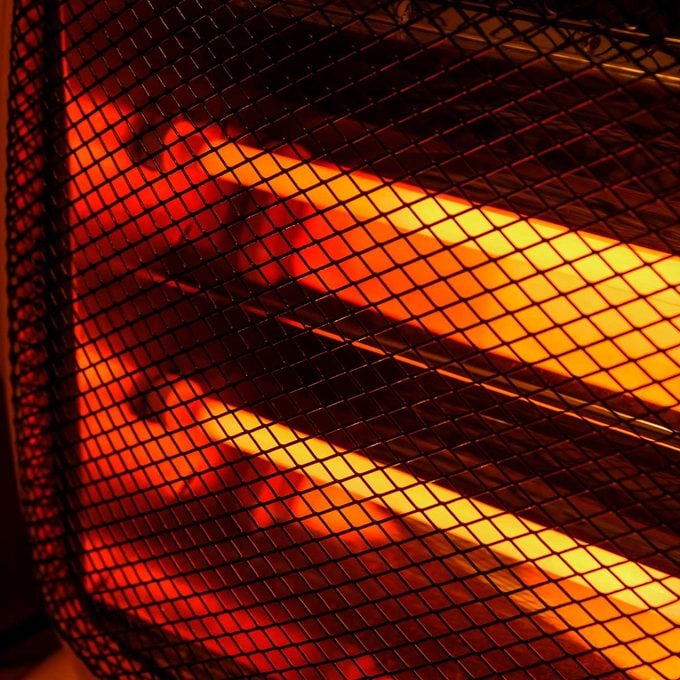Why You Shouldn’t Use Extension Cords for Space Heaters
Updated: Apr. 28, 2023
Heating is the second leading cause of house fires (behind cooking), according to the National Safety Council. In most cases, those fires involve space heaters.

As temperatures drop and winter leaves people craving a quick and comfy supplemental source of warmth, many consider pulling out a trusty space heater or investing in a new one.
Before you plug one in, know this: Heating is the second leading cause of house fires (behind cooking), according to the National Safety Council, and in most cases, those fires involve space heaters. Though they look small, they require significant wattage and produce enough heat to require smart planning and precaution when using.
On This Page
Why You Shouldn’t Use Space Heaters with Power Strips and Extension Cords
It’s rule No. 1: Don’t plug a space heater into a power strip, no matter how many hair straighteners, phone chargers, speakers, computers or gadgets may be vying for electricity. Space heaters must be plugged directly into a wall outlet, which can handle a higher wattage, and should be the only item plugged into that wall outlet. The Electrical Safety Foundation International says space heaters can overheat a power strip, as well as an extension cord, and potentially cause a fire. Space heaters demand much more current flow than other appliances. Power strips and extension cords are not equipped to handle this extra current flow, and can consequently cause a potential fire.
It never hurts to take extra measures to learn how to prevent home fires.
Place Space Heaters Away From Hazards
Make sure the space heater is placed on non-flammable tile or hardwood flooring—not on the carpet or a rug. Keep heaters at least three feet away from bedding, clothing, paper or books and drapes, too. Don’t locate them in high traffic areas, or anyplace they might be a tripping hazard.
Use Space Heaters Only With Supervision
Only use a space heater when someone is in the room, and keep children and pets a safe distance away. Turn them off when you leave the room, and don’t run them when you’re asleep, either.
Check Smoke Alarms and Inspect Cords
Make sure all of your smoke alarms are installed and working. (Some smoke alarm tips, to help.) Carefully check space heater cords for frays, cracks or breaks, and look for loose or broken connections, too. Keep the area around the space heater dry and free of moisture that may damage its components.
Shop for Space Heaters Wisely
The American Red Cross advises choosing a space heater that automatically shuts off if accidentally tipped over. Some also shut off if they may be overheating. Two inexpensive and highly-rated portable heaters that offer both of those safety features: TrusTech Portable Space Heater and GiveBest Portable Ceramic Heater. (Always read the manufacturer’s instructions and warning labels carefully.)
